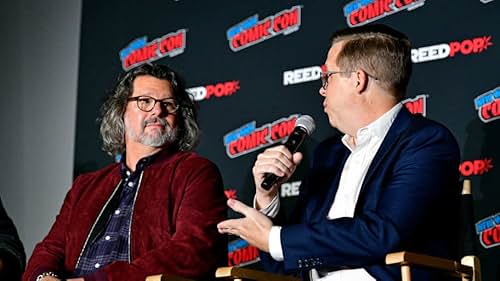
For many modern science-fiction fans, you may know Ronald D. Moore from his works on the Apple+ series, "For All Mankind". Yet, for fans of a certain age, you may remember Moore's work on Star Trek. He's often seen as one of the best writers the franchise ever had. Yet, between the current Apple+ series, and his work on Star Trek, Moore rebooted the maligned 1970s and 1980s series, Battlestar Galactica.
Moore helmed the show, which got picked up by SyFy first as a limited-run mini-series, and then later as a full-fledged show. While the show fell off heading into the fourth and final season, it still remains one of the most consistent, thought-provoking and incredible science-fiction series to date.
Yet, not everyone was a fan of the show, or more specifically, the changes Moore made to the series. According to the book "So Say We All: The Complete, Uncensored,...
Moore helmed the show, which got picked up by SyFy first as a limited-run mini-series, and then later as a full-fledged show. While the show fell off heading into the fourth and final season, it still remains one of the most consistent, thought-provoking and incredible science-fiction series to date.
Yet, not everyone was a fan of the show, or more specifically, the changes Moore made to the series. According to the book "So Say We All: The Complete, Uncensored,...
- 2/1/2025
- by Chad Porto
- Red Shirts Always Die
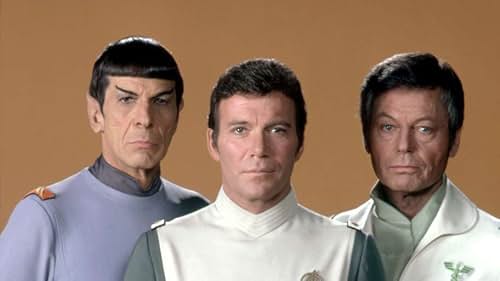
It's no secret that it took a lot of back and forths to get Star Trek: The Motion Picture greenlit. Originally, it was going to be a series [Phase II], but after Star Wars came out and was so successful at the box office, there was sudden interest in making a big screen Star Trek.
Academy Award winning director Robert Wise, who'd previously directed West Side Story and The Sound of Music, was chosen as the director, and this brought confusion to some of the parties involved. Although Jon Povill, the associate producer said "everyone was pretty much thrilled at the prospect of working with Robert Wise," Richard Taylor, who supervised the storyboarding for The Motion Picture, was also reported in The Fifty Year Mission The First Twenty-Five Years by Edward Gross and Mark A. Altman as saying "I don't think he was ever very enthusiastic at all about directing this movie.
Academy Award winning director Robert Wise, who'd previously directed West Side Story and The Sound of Music, was chosen as the director, and this brought confusion to some of the parties involved. Although Jon Povill, the associate producer said "everyone was pretty much thrilled at the prospect of working with Robert Wise," Richard Taylor, who supervised the storyboarding for The Motion Picture, was also reported in The Fifty Year Mission The First Twenty-Five Years by Edward Gross and Mark A. Altman as saying "I don't think he was ever very enthusiastic at all about directing this movie.
- 1/30/2025
- by Rachel Carrington
- Red Shirts Always Die
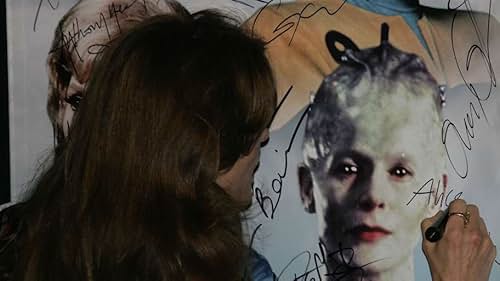
"All Good Things," the finale of Star Trek: The Next Generation after seven seasons, followed Captain Jean-Luc Picard [Patrick Stewart] as he time-traveled through various parts of his life, some of which never happened. From his first mission at Farpoint to a dissolved marriage with Dr. Beverly Crusher [Gates McFadden], which we never got to see, the finale went by far too fast. There was a lot to pack in to wrap up seven seasons of a show that had garnered a dedicated fan following.
Initially, though, Captain Picard was going to traverse through a fourth time period, which was "Best of Both Worlds," bringing him back to the most horrid part of his life when he was assimiliated as a Borg. According to Brannon Braga [recorded in Captains' Logs The Unauthorized Complete Star Trek Voyages by Mark A. Altman and Edward Gross], the finale was going to play out part of "Best of Both Worlds" where Hugh [nm0215336 autoJonathan Del Arco...
Initially, though, Captain Picard was going to traverse through a fourth time period, which was "Best of Both Worlds," bringing him back to the most horrid part of his life when he was assimiliated as a Borg. According to Brannon Braga [recorded in Captains' Logs The Unauthorized Complete Star Trek Voyages by Mark A. Altman and Edward Gross], the finale was going to play out part of "Best of Both Worlds" where Hugh [nm0215336 autoJonathan Del Arco...
- 1/16/2025
- by Rachel Carrington
- Red Shirts Always Die
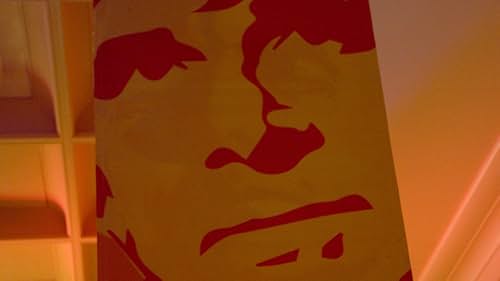
It's no surprise that Star Trek: The Original Series struggled in the ratings for the entirety of its run. Though season one has some of the best stories and strong characterization and the ratings were relatively strong, they didn't have the consistency needed to guarantee a season two renewal. There were even rumors that NBC was flirting with the idea of cancellation.
Gene Roddenberry reached out to prolific sci-fi writer Harlan Ellison for help. Ellison had, at the time already sold scripts to many television series, had written a novel, edited Rogue Magazine, and published more than 100 short stories and articles. He was a force to be reckoned with in the sci-fi industry. So it made sense that Roddenberry would seek his help. According to The Fifty Year Mission The First Twenty-Five Years by Edward Gross and Mark A. Altman, Ellison wrote a letter on December 1, 1966 to the Science Fiction Writers of America,...
Gene Roddenberry reached out to prolific sci-fi writer Harlan Ellison for help. Ellison had, at the time already sold scripts to many television series, had written a novel, edited Rogue Magazine, and published more than 100 short stories and articles. He was a force to be reckoned with in the sci-fi industry. So it made sense that Roddenberry would seek his help. According to The Fifty Year Mission The First Twenty-Five Years by Edward Gross and Mark A. Altman, Ellison wrote a letter on December 1, 1966 to the Science Fiction Writers of America,...
- 1/12/2025
- by Rachel Carrington
- Red Shirts Always Die
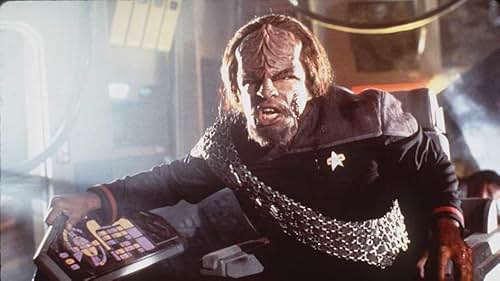
Star Trek: The Next Generation's finale, "All Good Things," has been lauded as one of the best Star Trek finales across the board. It brought all of the crew together and ended with Captain Jean-Luc Picared [Patrick Stewart] joining in on the poker game for the first time. Executive producer/showrunner for the series' seventh season, Jeri Taylor was quoted in Captains' Logs The Unauthorized Complete Star Trek Voyages by Edward Gross and Mark A. Altman, as saying that they "knew since the beginning of the season that that episode was coming at us and would have to be done, and it was intimidating."
Taylor went on to say that "any final episode of a series is unique and important and for a series like Star Trek, which has cut such a niche in the Amercian consciousness, the expectations are really very high." And the fans were expecting a...
Taylor went on to say that "any final episode of a series is unique and important and for a series like Star Trek, which has cut such a niche in the Amercian consciousness, the expectations are really very high." And the fans were expecting a...
- 1/12/2025
- by Rachel Carrington
- Red Shirts Always Die
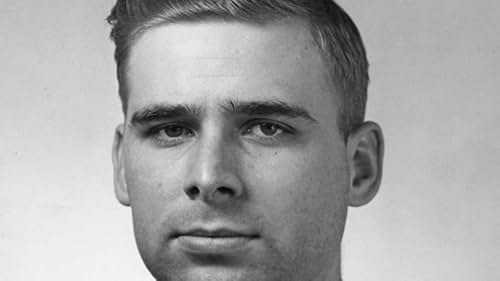
When Gene Roddenberry created Star Trek, he had a particular way he wanted things done. He wanted the characters to be written a certain way for them to grow into the characters that we now know and love. And he wasn't willing to back down from what he knew Star Trek could be, especially since it was something that had never been done before.
When the series was just getting started, Roddenberry was adamant about the type of stories he wanted to be included in Star Trek as well as those he didn't. According to The Fifty Year Mission The First 25 Years written by Edward Gross and Mark A. Altman, Roddenberry admitted that during the first year of Star Trek, he rewrote everyone's scripts...even his best friends. That, according to Robert Justman, caused a lot of bruised egos as no writer wants to be rewritten.
But these Trek characters had never been written before,...
When the series was just getting started, Roddenberry was adamant about the type of stories he wanted to be included in Star Trek as well as those he didn't. According to The Fifty Year Mission The First 25 Years written by Edward Gross and Mark A. Altman, Roddenberry admitted that during the first year of Star Trek, he rewrote everyone's scripts...even his best friends. That, according to Robert Justman, caused a lot of bruised egos as no writer wants to be rewritten.
But these Trek characters had never been written before,...
- 1/5/2025
- by Rachel Carrington
- Red Shirts Always Die
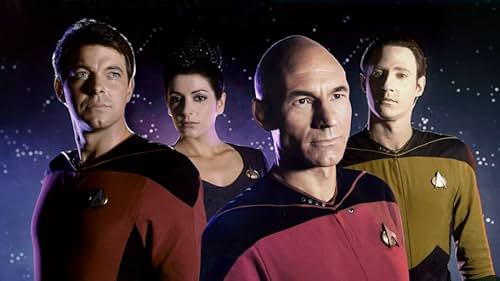
Star Trek: The Next Generation started getting better after its rough start in season one. Most shows do have some bumpy starts, but The Next Generation had to overcome some fairly ill-conceived scripts and the fact that fans of Star Trek: The Original Series weren't happy about a "new" Star Trek. In fact, many declared that wouldn't watch it since the show didn't include Captain Kirk [William Shatner] or any of the original cast from Tos. But The Next Generation persevered, and by its third season, scripts had improved in quality, and the series had found its fan base. And that fan base was vocal when it saw something they didn't like.
In the third season episode of The Next Generation, "Menage a Trois," Riker [Jonathan Frakes], Troi [Marina Sirtis], and her mother are kidnapped by the Ferengi. Lwaxanna [Majel Barrett Roddenberry] is wanted for her telepathic powers, and what...
In the third season episode of The Next Generation, "Menage a Trois," Riker [Jonathan Frakes], Troi [Marina Sirtis], and her mother are kidnapped by the Ferengi. Lwaxanna [Majel Barrett Roddenberry] is wanted for her telepathic powers, and what...
- 12/29/2024
- by Rachel Carrington
- Red Shirts Always Die
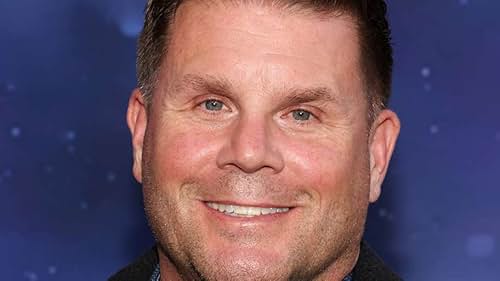
When Star Trek: The Original Series was brought back as Star Trek: The Animated Series, there were a lot of changes. Walter Koenig was left out of the series, there was a different alien on the bridge besides just Mr. Spock, and the animation was mediocre at best, to name a few. Those changes didn't stop the series from delivering some pretty stand-out episodes like "Yesteryear" when Spock has to go back in time to save his younger self.
The Animated Series aired for twenty-two episodes between September 8, 1973 to October 12, 1974, with those counting as two seasons. And though the ratings were high, the show didn't reach its targeted demographic.
Gene Roddenberry's son, Rod Roddenberry, wasn't too impressed at the idea of the series initially and, according to a quote recorded in The Fifty Year Mission The First 25 Years by Edward Gross and Mark A. Altman, he "dismissed it as nonsense without ever seeing it.
The Animated Series aired for twenty-two episodes between September 8, 1973 to October 12, 1974, with those counting as two seasons. And though the ratings were high, the show didn't reach its targeted demographic.
Gene Roddenberry's son, Rod Roddenberry, wasn't too impressed at the idea of the series initially and, according to a quote recorded in The Fifty Year Mission The First 25 Years by Edward Gross and Mark A. Altman, he "dismissed it as nonsense without ever seeing it.
- 12/28/2024
- by Rachel Carrington
- Red Shirts Always Die
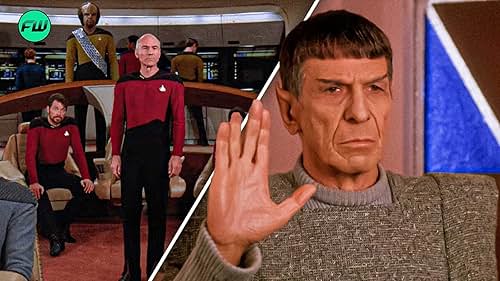
Star Trek: The Next Generation was graced with the presence of one of the greatest minds in science. In the sixth season episode, titled Descent Part 1, Stephen Hawking appeared in the opening sequence. Interestingly, Hawking first mentioned his desire to star in one of The Next Generation episodes to Og Star Trek star Leonard Nimoy.
Stephen Hawking in a still from Star Trek: The Next Generation | Credits: Paramount Television
Nimoy then conveyed this message to the executive producer of the series Rick Berman, who wasted no time in contacting Hawking’s team. What followed was a scene in the series where Hawking played a simulated version of himself alongside Brent Spiner and actors playing Albert Einstein and Isaac Newton.
Leonard Nimoy played a role in Star Trek: The Next Generation‘s Stephen Hawking cameo Leonard Nimoy in a still from Star Trek: The Original Series | Credits: Paramount Television
Star Trek:...
Stephen Hawking in a still from Star Trek: The Next Generation | Credits: Paramount Television
Nimoy then conveyed this message to the executive producer of the series Rick Berman, who wasted no time in contacting Hawking’s team. What followed was a scene in the series where Hawking played a simulated version of himself alongside Brent Spiner and actors playing Albert Einstein and Isaac Newton.
Leonard Nimoy played a role in Star Trek: The Next Generation‘s Stephen Hawking cameo Leonard Nimoy in a still from Star Trek: The Original Series | Credits: Paramount Television
Star Trek:...
- 12/19/2024
- by Hashim Asraff
- FandomWire
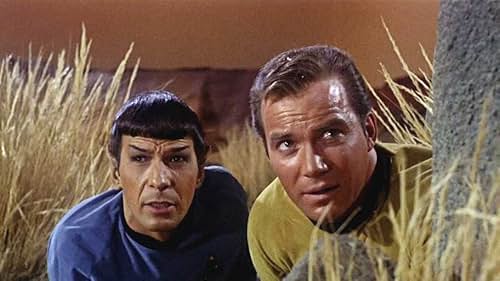
Star Trek: The Original Series consists of seventy-nine episodes, and while not all of them are ones you'd want to rewatch again and again, many are. The few that were the least favorite of the fans, for the most part, were produced in season three when the budget had been cut by $15,000 per episode, and the series had been moved to Friday nights at 10:00 p.m. It was a clear sign that the show was circling the drain, and the producer for the third season, Fred Freiberger, has always been blamed for the clunker episodes.
As it turns out, according to Margaret Armen, who wrote "The Paradise Syndrome," Freiberger didn't come across as the biggest fan of the series. As reported in The Fifty Year Mission The First 25 Years by Edward Gross and Mark A. Altman, Armen watched an episode of the series when Freiberger was brought in to produce the third season.
As it turns out, according to Margaret Armen, who wrote "The Paradise Syndrome," Freiberger didn't come across as the biggest fan of the series. As reported in The Fifty Year Mission The First 25 Years by Edward Gross and Mark A. Altman, Armen watched an episode of the series when Freiberger was brought in to produce the third season.
- 12/10/2024
- by Rachel Carrington
- Red Shirts Always Die
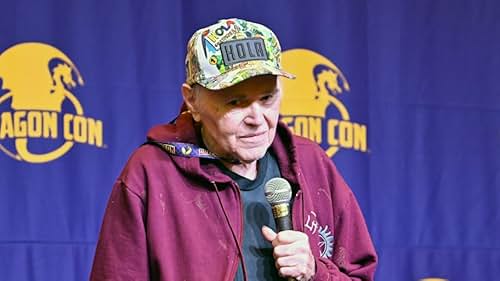
The idea of Star Trek: The Next Generation wasn't welcomed by fans originally. Most had a problem with the fact that there was no Captain Kirk or Mr. Spock. Plenty of fans protested, saying they wouldn't watch it. But the show persevered and earned its own audience and fans. But one of The Original Series' actors, Walter Koenig, admitted he hoped the show would fail. [Source: Captains' Logs The Unauthorized Complete Trek Voyages by Edward Gross and Mark A. Altman].
In a direct quote from the book, Koenig said he "had propriety feelings and didn't like the idea of somebody else taking over." Being that Star Trek: The Original Series was deep into the movies when The Next Generation premiered, he thought Tng would negatively impact the feature films. And while he later admitted that his initial feelings were "mean-spirited," he did add that he still liked The Original Series better than Tng.
And many fans feel that way.
In a direct quote from the book, Koenig said he "had propriety feelings and didn't like the idea of somebody else taking over." Being that Star Trek: The Original Series was deep into the movies when The Next Generation premiered, he thought Tng would negatively impact the feature films. And while he later admitted that his initial feelings were "mean-spirited," he did add that he still liked The Original Series better than Tng.
And many fans feel that way.
- 11/28/2024
- by Rachel Carrington
- Red Shirts Always Die
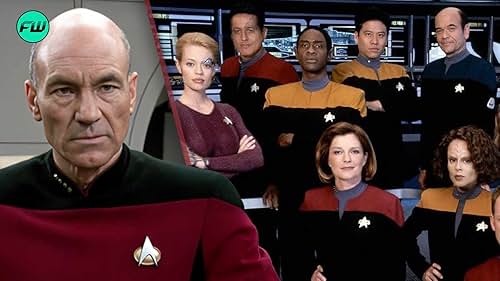
Star Trek: Voyager was a replacement for Patrick Stewart’s canceled The Next Generation, but things differed between both sets when it came to one aspect. Star Trek: Tng would’ve never allowed any of its stars to feel inferior, thanks to Stewart’s interference. Voyager star Garrett Wang did not have a great time on the set of his series due to body-shaming comments from the crew.
Garrett Wang as Ensign Harry Kim in Star Trek: Voyager | Credits: Paramount Television
Wang’s co-star Robert Duncan McNeill also confirmed that the showrunner allowed several lines in the show that took a not-so-subtle dig at their body weight. Wang even recalled that the comments forced him to hit the gym to avoid future mockery.
Star Trek: Voyager Star Garrett Wang Faced Body-Shaming Comments From Showrunner Garrett Wang and Robert Duncan McNeill in Star Trek: Voyager | Credits: Paramount Television
Mark A. Altman...
Garrett Wang as Ensign Harry Kim in Star Trek: Voyager | Credits: Paramount Television
Wang’s co-star Robert Duncan McNeill also confirmed that the showrunner allowed several lines in the show that took a not-so-subtle dig at their body weight. Wang even recalled that the comments forced him to hit the gym to avoid future mockery.
Star Trek: Voyager Star Garrett Wang Faced Body-Shaming Comments From Showrunner Garrett Wang and Robert Duncan McNeill in Star Trek: Voyager | Credits: Paramount Television
Mark A. Altman...
- 11/11/2024
- by Hashim Asraff
- FandomWire
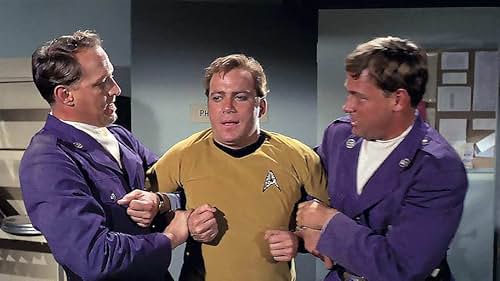
Gene Roddenberry and NBC parted ways before the third season of Star Trek: The Original Series began, and Fred Freiberger was brought on board as the producer. Unfortunately, the third season wasn't the series' best, mainly because of a much tighter budget, which restricted the sets that could be built and the aliens that could be created. The ratings weren't there because NBC shoved the show into a Friday night time slot which would have spelled death for any series. Still, when The Original Series was cancelled after three season, Freiberger took the blame.
In a previous interview that was included in The Fifty Year Mission The First 25 Years by Edward Gross and Mark A. Altman, Freiberger said that he was the "target of vicious and unfair attacks." Writer David Gerrold said "everybody disliked Freiberger intensely," but the producer went on to say that the fans he met at conventions always treated him with courtesy.
In a previous interview that was included in The Fifty Year Mission The First 25 Years by Edward Gross and Mark A. Altman, Freiberger said that he was the "target of vicious and unfair attacks." Writer David Gerrold said "everybody disliked Freiberger intensely," but the producer went on to say that the fans he met at conventions always treated him with courtesy.
- 11/10/2024
- by Rachel Carrington
- Red Shirts Always Die
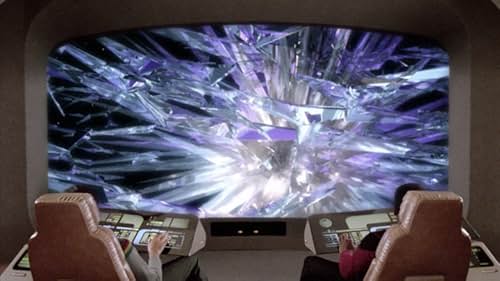
We may receive a commission on purchases made from links.
The Crystalline Entity first appeared in the "Star Trek: The Next Generation" episode "Datalore", and it served as an overwhelming force of nature that the crew of the U.S.S. Enterprise didn't know how to deal with. It was massive in scale and required great deals of energy to stay alive, energy it acquired by eating entire planets of life. It would extend a beam down to a planet's surface and essentially suck up and obliterate anything alive below. The Entity was an indifferent force of faceless destruction, and many Trekkies have compared it to Moby-Dick in that regard. It's not evil, but merely unaware that its consumption habits have the capability of ending entire civilizations.
In "Datalore," the Entity had been weaponized by Lore (Brent Spiner), the "evil twin" of the android Data (also Spiner). It seems that...
The Crystalline Entity first appeared in the "Star Trek: The Next Generation" episode "Datalore", and it served as an overwhelming force of nature that the crew of the U.S.S. Enterprise didn't know how to deal with. It was massive in scale and required great deals of energy to stay alive, energy it acquired by eating entire planets of life. It would extend a beam down to a planet's surface and essentially suck up and obliterate anything alive below. The Entity was an indifferent force of faceless destruction, and many Trekkies have compared it to Moby-Dick in that regard. It's not evil, but merely unaware that its consumption habits have the capability of ending entire civilizations.
In "Datalore," the Entity had been weaponized by Lore (Brent Spiner), the "evil twin" of the android Data (also Spiner). It seems that...
- 11/6/2024
- by Witney Seibold
- Slash Film
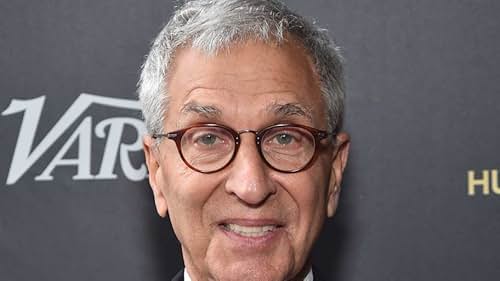
Much has been said about William Shatner's ego and his larger than life persona, especially from his former co-stars. But, according to Deborah Arakelian, who was a production assistant to Harve Bennett during the filming of Star Trek II: The Wrath of Khan, nobody equaled Nicholas Meyer. Arakelian's claim, recorded in The Fifty-Year Mission The First Twenty-Five Years by Edward Gross and Mark A. Altman, is that "Nicky is larger than life. His persona is much larger than Bill's."
Meyer was hired to direct The Wrath of Khan and ended up rewriting the script as well. Meyer wrote a story that everyone loved. Even Shatner admitted "we were in love with the script and impressed by his [Meyer's] creative ability." And no one requested any major changes because of that love.
According to Arkelian, it wouldn't have mattered because "no one tells Nicky what to do. Bill could have tried,...
Meyer was hired to direct The Wrath of Khan and ended up rewriting the script as well. Meyer wrote a story that everyone loved. Even Shatner admitted "we were in love with the script and impressed by his [Meyer's] creative ability." And no one requested any major changes because of that love.
According to Arkelian, it wouldn't have mattered because "no one tells Nicky what to do. Bill could have tried,...
- 10/29/2024
- by Rachel Carrington
- Red Shirts Always Die
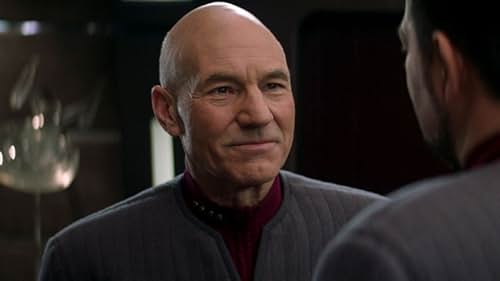
We may receive a commission on purchases made from links.
When production began on Stuart Baird's "Star Trek: Nemesis," everyone knew it was going to be the final cinematic outing for the cast of "Star Trek: The Next Generation." The film is full of giant, dramatic changes for its characters and features multiple fond farewells. It even opens with the marriage of Will Riker (Jonathan Frakes) and Deanna Troi (Marina Sirtis), a romantic consummation that had been dangling over the franchise since 1987. Riker also, at long last, accepted a captaincy of his own, taking command of the U.S.S. Titan. "Nemesis" was going to dramatize Riker's final mission as first officer of a ship called the Enterprise.
The ending of "Nemesis" was dramatic and tragic. Captain Picard (Patrick Stewart) was stranded on board a Romulan vessel and the Enterprise, pummeled in battle, was about to be destroyed. Data...
When production began on Stuart Baird's "Star Trek: Nemesis," everyone knew it was going to be the final cinematic outing for the cast of "Star Trek: The Next Generation." The film is full of giant, dramatic changes for its characters and features multiple fond farewells. It even opens with the marriage of Will Riker (Jonathan Frakes) and Deanna Troi (Marina Sirtis), a romantic consummation that had been dangling over the franchise since 1987. Riker also, at long last, accepted a captaincy of his own, taking command of the U.S.S. Titan. "Nemesis" was going to dramatize Riker's final mission as first officer of a ship called the Enterprise.
The ending of "Nemesis" was dramatic and tragic. Captain Picard (Patrick Stewart) was stranded on board a Romulan vessel and the Enterprise, pummeled in battle, was about to be destroyed. Data...
- 10/21/2024
- by Witney Seibold
- Slash Film
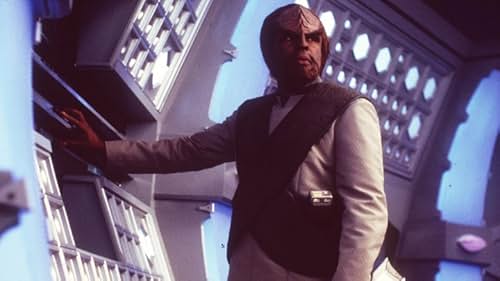
"Star Trek" fans really had it all in the mid-1990s. The "Star Trek: The Next Generation" movies carried on the adventures of the Enterprise at the cinemas, while "Star Trek: Deep Space Nine" and "Star Trek: Voyager" told new stories of Starfleet on the television each week. It was truly an amazing time to be a "Star Trek" fan, although occasionally it could feel like "The Next Generation" got preferential treatment above the other two series. That was especially true when it came to how the events of "Deep Space Nine" were depicted in the "Next Generation" movies.
You see, the events of "Star Trek: Insurrection" take place during the Dominion War, which is the main arc of the final few seasons of "Star Trek: Deep Space Nine." Lieutenant Commander Worf (Michael Dorn) went from serving on the Enterprise to the space station Deep Space Nine when "The Next Generation" went off the air,...
You see, the events of "Star Trek: Insurrection" take place during the Dominion War, which is the main arc of the final few seasons of "Star Trek: Deep Space Nine." Lieutenant Commander Worf (Michael Dorn) went from serving on the Enterprise to the space station Deep Space Nine when "The Next Generation" went off the air,...
- 10/20/2024
- by Danielle Ryan
- Slash Film
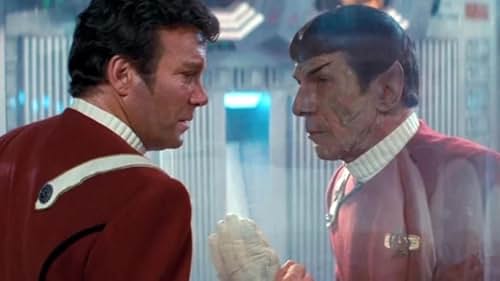
We may receive a commission on purchases made from links.
It's possible that the best "Star Trek" movie of all time could be the one that never existed. Before Gene Roddenberry's hokey but heartfelt '60s sci-fi series made the leap to the big screen with a series of wildly inconsistent movies beginning in 1979, the franchise nearly went in an entirely different direction. If not for a studio exec who hated science fiction, and creative differences in the writers' room, the first "Star Trek" film would have been "Planet of the Titans," an incredibly ambitious project that was developed over 7 months before being shelved for good, according to the book "The Fifty-Year Mission."
The first "Star Trek" oral history book from Edward Gross and Mark A. Altman, subtitled "The First 25 Years," sets the record straight on many moments from "Trek" history that have become the stuff of legends, but...
It's possible that the best "Star Trek" movie of all time could be the one that never existed. Before Gene Roddenberry's hokey but heartfelt '60s sci-fi series made the leap to the big screen with a series of wildly inconsistent movies beginning in 1979, the franchise nearly went in an entirely different direction. If not for a studio exec who hated science fiction, and creative differences in the writers' room, the first "Star Trek" film would have been "Planet of the Titans," an incredibly ambitious project that was developed over 7 months before being shelved for good, according to the book "The Fifty-Year Mission."
The first "Star Trek" oral history book from Edward Gross and Mark A. Altman, subtitled "The First 25 Years," sets the record straight on many moments from "Trek" history that have become the stuff of legends, but...
- 10/16/2024
- by Valerie Ettenhofer
- Slash Film
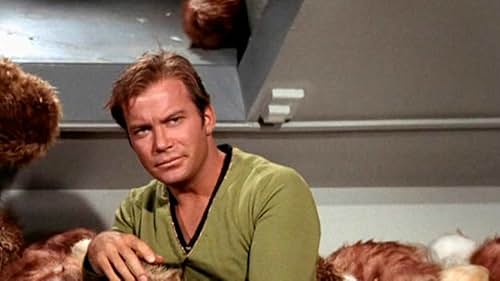
David A. Goodman wrote The Autobiography of James T. Kirk (2015), The Autobiography of Jean-Luc Picard (2017), and The Autobiography of Mr. Spock (2020). He has been been a dedicated fan of Star Trek, having also written for Star Trek: Enterprise, and he was responsible for bringing Seth MacFarlane aboard the Enterprise for a brief role. [via Trekmovie] It's safe to say that there isn't much he doesn't love about Star Trek, and his love hearkens back to The Original Series because of its originality.
The Fifty-Year Mission The First Twenty-Five Years by Mark A. Altman and Edward Gross included a quote from Goodman who spoke about how Star Trek stands the test of time essentially. And, though a big fan of The Next Generation, Goodman had some strong thoughts about the differences in the series.
In a certain way, Next Generation, as big a fan as I am of it, pales in comparison to the original series,...
The Fifty-Year Mission The First Twenty-Five Years by Mark A. Altman and Edward Gross included a quote from Goodman who spoke about how Star Trek stands the test of time essentially. And, though a big fan of The Next Generation, Goodman had some strong thoughts about the differences in the series.
In a certain way, Next Generation, as big a fan as I am of it, pales in comparison to the original series,...
- 10/14/2024
- by Rachel Carrington
- Red Shirts Always Die
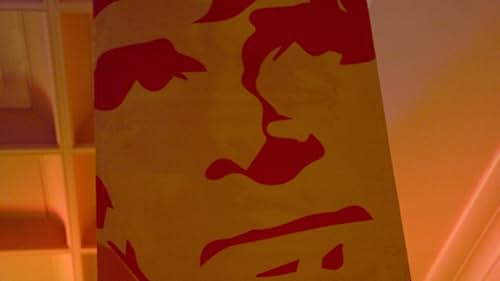
William Shatner has spoken before about the tough times he went through after the cancellation of Star Trek: The Original Series. Walter Koenig, too, has said that the phone just wasn't ringing afterwards. But the ending of the series affected more than the actors as The Fifty-Year Mission The First 25 Years by Mark A. Altman and Edward Gross revealed in an older quote from Gene Roddenberry.
After the series was cancelled, Roddenberry admitted that he had some tough times. He saw his dreams "going downhill" as he coudln't get work. Though he'd written other genres besides science fiction before The Original Series debuted, he was dubbed a "science fiction" writer so the work just wasn't coming.
Roddenberry spoke at colleges to the devoted fans, and with the first one, he said he "felt lucky to net the four or five hundred dollars that they paid me." At times, it was...
After the series was cancelled, Roddenberry admitted that he had some tough times. He saw his dreams "going downhill" as he coudln't get work. Though he'd written other genres besides science fiction before The Original Series debuted, he was dubbed a "science fiction" writer so the work just wasn't coming.
Roddenberry spoke at colleges to the devoted fans, and with the first one, he said he "felt lucky to net the four or five hundred dollars that they paid me." At times, it was...
- 10/11/2024
- by Rachel Carrington
- Red Shirts Always Die
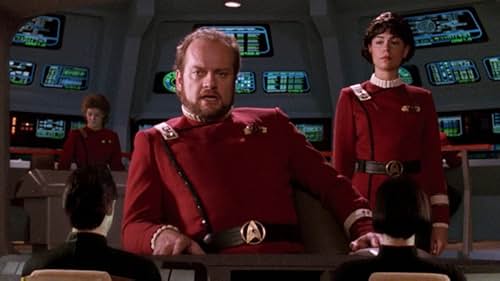
The "Star Trek: The Next Generation" episode "Cause and Effect" opens with the Enterprise-d facing a catastrophe. The episode fades up, and the ship is already severely damaged. Casualty reports are coming in! Everything is failing! We are venting drive plasma! All hands to emergency escape pods! We are losing antimatter containment! Core breach is imminent! Just as Captain Picard (Patrick Stewart) gives the command to abandon ship, the ship explodes, killing everyone on board. Then the opening credits roll. It's perhaps the most eye-grabbing start to any episode of "Star Trek."
As the episode progresses, though, viewers soon get to know the gist of the episode. The first act sees the Enterprise restored, sailing merrily through space as if nothing happened. At the end of the first act, the ship collides with another starship that seeming appeared out of nowhere. The disaster happens a second time, and audiences see...
As the episode progresses, though, viewers soon get to know the gist of the episode. The first act sees the Enterprise restored, sailing merrily through space as if nothing happened. At the end of the first act, the ship collides with another starship that seeming appeared out of nowhere. The disaster happens a second time, and audiences see...
- 10/5/2024
- by Witney Seibold
- Slash Film
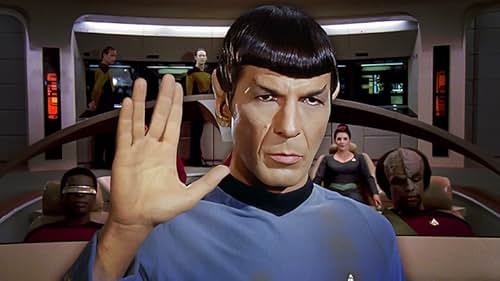
When the people at Paramount decided that they were going to create another "Star Trek" show in the wake of the original series, they wanted to bring in some of the people who helped make the first show into a massive part of pop culture. They didn't want them on screen, necessarily, as the new show would be "Star Trek: The Next Generation," and they wanted to feature the next generation of Starfleet officers. But they did want some of the old team behind-the-scenes. One of the first people they asked aboard was Leonard Nimoy, who played Commander Spock on "Star Trek: The Original Series," as well as directing "Star Trek III: The Search for Spock" and "Star Trek IV: The Voyage Home." (He also produced "Star Trek VI: The Undiscovered Country.")
While Nimoy makes a lot of sense as a possible producer for "Star Trek: The Next Generation," he passed on the opportunity.
While Nimoy makes a lot of sense as a possible producer for "Star Trek: The Next Generation," he passed on the opportunity.
- 9/29/2024
- by Danielle Ryan
- Slash Film
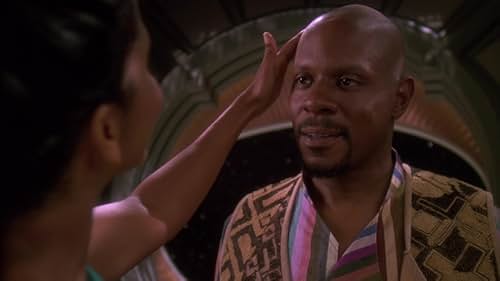
Most "Star Trek" captains have a signature look. Captain James T. Kirk (William Shatner) and Captain Christopher Pike (Anson Mount) both have truly fabulous hair, while Jean-Luc Picard (Patrick Stewart) is known for being clean-shaven and bald. But "Star Trek: Deep Space Nine" captain Benjamin Sisko, played by Avery Brooks, went through a bit more change than the average leader on the series. It makes sense in the show; Sisko is arguably the best and most complex "Star Trek" captain, and he goes through the stresses of commanding a space station during a terrible war. Anyone who grows and changes as much as he does is bound to alter their appearance a bit, but the real-life reasons for Sisko's changing looks between the seasons were a little more frustrating.
Throughout most of the first three seasons of "Deep Space Nine," Brooks is clean-shaven, growing a goatee toward the end of season 3. In the season 4 premiere,...
Throughout most of the first three seasons of "Deep Space Nine," Brooks is clean-shaven, growing a goatee toward the end of season 3. In the season 4 premiere,...
- 9/28/2024
- by Danielle Ryan
- Slash Film
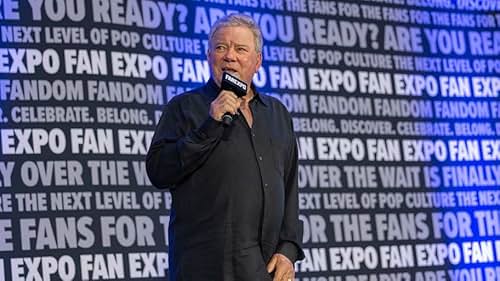
When Star Trek: The Original Series' first pilot, "The Cage," was shot down by NBC, there was no guarantee the series was going to get off the ground even though it was given a second chance to prove itself with a new pilot. Jeffrey Hunter, the actor who played Captain Christopher Pike in the original pilot, elected not to return for another shot at the show so a new captain had to be found, and William Shatner was cast.
And while some actors who worked with Shatner on the set complained about his need to be in front of the cameras as well as other issues dealing with ego, one writer, David Gerrold, who penned the famously popular "The Trouble with Tribbles" came straight out and said that Star Trek: The Original Series and the movies were successful because of Shatner.
In The Fifty-Year Mission The First Twenty-Five Years by...
And while some actors who worked with Shatner on the set complained about his need to be in front of the cameras as well as other issues dealing with ego, one writer, David Gerrold, who penned the famously popular "The Trouble with Tribbles" came straight out and said that Star Trek: The Original Series and the movies were successful because of Shatner.
In The Fifty-Year Mission The First Twenty-Five Years by...
- 9/24/2024
- by Rachel Carrington
- Red Shirts Always Die

"The Cage" was the original pilot of Star Trek: The Original Series. It completed filming in January 1965 and was offered to NBC for screeing in February 1965. All Star Trek fans know how that went down. Though now, the episode is one of the highest-ranked episodes by sites like Den of Geek and Syfy, back in 1965, the NBC executives rejected it for the pilot of the brand new sci-fi series.
Oscar Katz, who was the head of production at Desilu, which produced the first two seasons of The Original Series, didn't understaned why the network had turned it down, and the explanation didn't really help. Executives responded with "we can't sell this show; it's too atypical." Katz reminded NBC that they'd chosen "The Cage" to review as the pilot out of four potential offerings as Gene Roddenberry had written three additional script pilots.
When they rejected "The Cage," I asked NBC,...
Oscar Katz, who was the head of production at Desilu, which produced the first two seasons of The Original Series, didn't understaned why the network had turned it down, and the explanation didn't really help. Executives responded with "we can't sell this show; it's too atypical." Katz reminded NBC that they'd chosen "The Cage" to review as the pilot out of four potential offerings as Gene Roddenberry had written three additional script pilots.
When they rejected "The Cage," I asked NBC,...
- 9/22/2024
- by Rachel Carrington
- Red Shirts Always Die
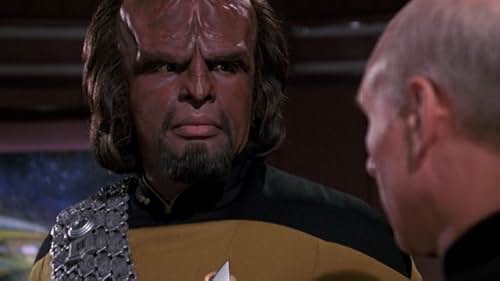
In the "Star Trek: The Next Generation" episode "The Enemy", the U.S.S. Enterprise-d rushes to the aid of a downed Romulan vessel on a stormy, radioactive planet called Galorndon Core. Dr. Crusher (Gates McFadden) manages to rescue an injured Romulan officer, and keeps his condition steady back on board the ship. It seems, however, that the Romulan suffered a deep neurological injury that she won't be able to treat unless she gets some Romulan blood she can transfuse. Sadly, the Federation and the Romulans are still deeply at odds, and there is no Romulan blood on hand.
Dr. Crusher does find that she can, with some clever organic chemistry, alter the blood of a Klingon to serve as a reasonable facsimile, and there is one Klingon, Worf (Michael Dorn), on board. All she needs to do is get a blood sample from him, extrapolate the appropriate ribosomes, and save her patient's life.
Dr. Crusher does find that she can, with some clever organic chemistry, alter the blood of a Klingon to serve as a reasonable facsimile, and there is one Klingon, Worf (Michael Dorn), on board. All she needs to do is get a blood sample from him, extrapolate the appropriate ribosomes, and save her patient's life.
- 9/22/2024
- by Witney Seibold
- Slash Film
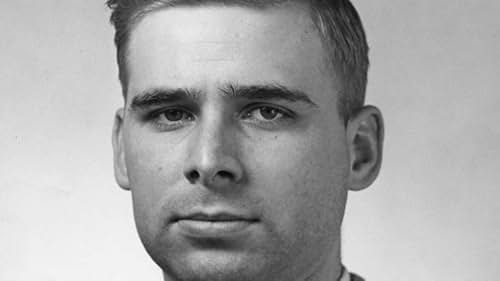
Star Trek: The Original Series was always meant to be an ensemble show with William Shatner, Leonard Nimoy, and DeForest Kelley as the triumvirate. Though Shatner was the star of the show, that didn't mean he would get all of the big scenes or every episode would be solely about him. As Spockmania grew, more fans were tuning in for Leonard Nimoy's depiction of Spock, which caused some issues among the actors. By August 1967, tensions had grown between the stars of The Original Series to the point where Gene Roddenberry felt he had to step in.
In a scathing letter, he made it quite clear that Shatner was the lead of the series, but he also made it abundantly clear that he would be Roddenberry's version of the lead and not Shatner's. Roddenberry clarified Nimoy as "a strong, effective, and integral second lead." So, in sounds like there really were two leads to the series,...
In a scathing letter, he made it quite clear that Shatner was the lead of the series, but he also made it abundantly clear that he would be Roddenberry's version of the lead and not Shatner's. Roddenberry clarified Nimoy as "a strong, effective, and integral second lead." So, in sounds like there really were two leads to the series,...
- 9/21/2024
- by Rachel Carrington
- Red Shirts Always Die
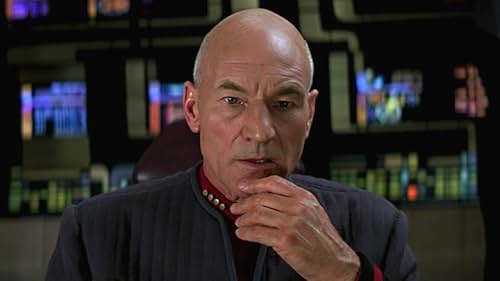
After the release of "Star Trek: Generations" in 1994, the various "Trek" writers felt a great weight lifted. There were a lot of strange story requirements in place when adapting "Star Trek: The Next Generation" to the big screen for the first time, and writers Ron D. Moore and Brannon Braga bent over backwards to invent a story that fulfilled every mandate. They managed to check every box -- original "Star Trek" cast members in the first 10 minutes only, Klingons had to be involved, time travel had to be a plot element -- but "Generations" feels scattered as a result. It ultimately served as a "passing of the torch" from Captain Kirk (William Shatner) to Captain Picard (Patrick Stewart), which was wholly unnecessary, given that Picard had already headlined his own TV series for seven seasons.
When the time came to write a sequel, Braga and Moore suddenly felt a lot freer.
When the time came to write a sequel, Braga and Moore suddenly felt a lot freer.
- 9/20/2024
- by Witney Seibold
- Slash Film
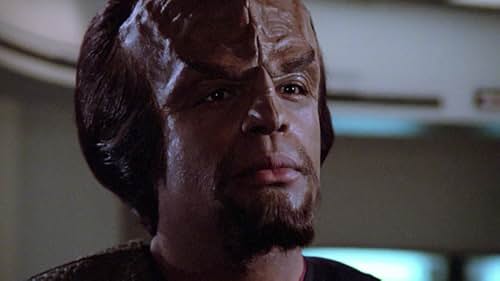
Captain Kirk (William Shatner) and Commander Spock (Leonard Nimoy) are probably the most widely recognizable characters in all of "Star Trek," but there's only one character who has made his mark on three separate "Star Trek" shows: Worf, son of Mogh, played by Michael Dorn. Worf is basically the John Wick of the "Star Trek" franchise according to Dorn himself, because the Klingon is an absolute badass with an intense personal moral compass. Better yet, he's a major character in "Star Trek: The Next Generation," "Star Trek: Deep Space Nine," and "Star Trek: Picard." Over the course of his time on the franchise, he's gone through an incredible transformation: from an angry young warrior who felt adrift as a Klingon raised by humans, to a thoughtful pacifist who drinks tea. Worf, quite frankly, rules, and Dorn bears a lot of the responsibility for making him such a complex, amazing character.
- 9/19/2024
- by Danielle Ryan
- Slash Film
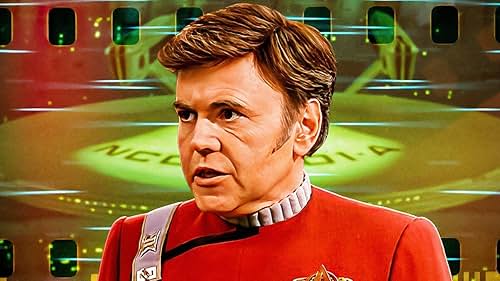
Star Trek VI: The Undiscovered Country is a rousing sendoff for Star Trek: The Original Series' cast, but Walter Koenig is also absolutely right to criticize how Star Trek VI portrayed the USS Enterprise's supporting cast. Directed by Nicholas Meyer, written by Meyer and Denny Martin Flynn, from a story by Leonard Nimoy, Mark Rosenthal, and Lawrence Konner, Star Trek VI saw the Klingons sue for peace with the United Federation of Planets after an ecological disaster. Only Captain James T. Kirk (William Shatner) and the crew of the Starship Enterprise could uncover a conspiracy to prevent peace with the Klingons.
Star Trek VI marked the last time the entire cast of Star Trek: The Original Series performed together. Although William Shatner's Captain Kirk, James Doohan's Scotty, and Walter Koenig's Pavel Chekov returned in Star Trek Generations, the latter two were only present in the film's prologue. For Star Trek's original cast,...
Star Trek VI marked the last time the entire cast of Star Trek: The Original Series performed together. Although William Shatner's Captain Kirk, James Doohan's Scotty, and Walter Koenig's Pavel Chekov returned in Star Trek Generations, the latter two were only present in the film's prologue. For Star Trek's original cast,...
- 9/17/2024
- by John Orquiola
- ScreenRant
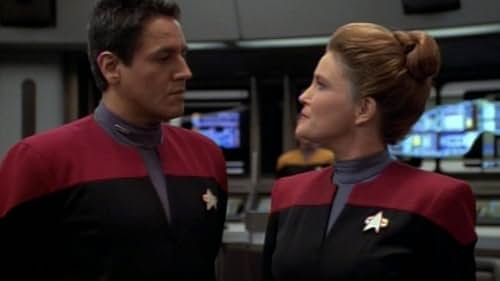
The premise of "Star Trek: Voyager" was full of promise. In the pilot episode, "Caretaker," the title ship is assigned to apprehend a rogue vessel piloted by a terrorist group called the Maquis. The Maquis were an anti-Federation group that resented the organization's clumsy diplomacy, and tendency to kowtow to violent species like the Cardassians. The Maquis played a small role in late episodes of "Star Trek: The Next Generation" and on "Star Trek: Deep Space Nine," and they provided a tantalizing philosophical counterpoint to Gene Roddenberry's utopian future; we seem to be living in a universe without want, and the Federation seems to exist to provide equity to the galaxy, but there are still many people who aren't getting what they need. The Maquis aimed to rectify that.
During the scuffle, the U.S.S. Voyager and the Maquis ship are both unexpectedly whisked clear across the galaxy by a godlike alien being.
During the scuffle, the U.S.S. Voyager and the Maquis ship are both unexpectedly whisked clear across the galaxy by a godlike alien being.
- 9/2/2024
- by Witney Seibold
- Slash Film
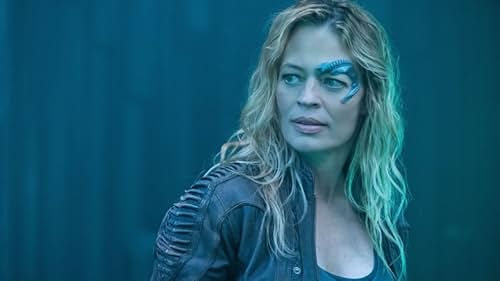
At the end of the third season of "Star Trek: Voyager," ratings were flagging and Paramount was concerned. The show was competent enough, but it simply wasn't drawing the numbers that "Star Trek: The Next Generation" did before it. To shake up the series, the writers ejected the gentle character of Kes (Jennifer Lien) and replaced her with Seven of Nine (Jeri Ryan), a Borg babe in a skintight catsuit. The show's writers loved Seven of Nine, and the series was restructured to be almost entirely about her. It also didn't hurt that Ryan looked like a magazine cover model and was cinched up in a bust-enhancing corset. Ratings, needless to say, went up.
It's reported in the oral history book "The Fifty-Year Mission: The Next 25 Years: From The Next Generation to J. J. Abrams," edited by Mark A. Altman and Edward Gross, that the cast of "Voyager" initially resented Ryan,...
It's reported in the oral history book "The Fifty-Year Mission: The Next 25 Years: From The Next Generation to J. J. Abrams," edited by Mark A. Altman and Edward Gross, that the cast of "Voyager" initially resented Ryan,...
- 9/1/2024
- by Witney Seibold
- Slash Film
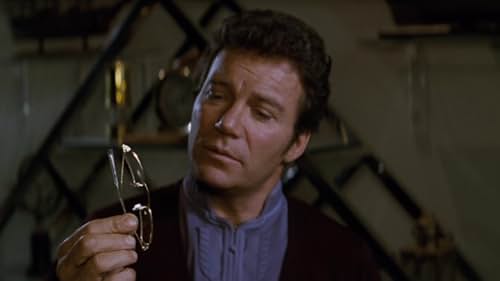
Nicholas Meyer's 1982 film "Star Trek II: The Wrath of Khan" is generally regarded as the best of the 13 extant "Star Trek" movies, at least according to any Trekkies you may ask. At the very least, "The Wrath of Khan" became the popular model on which multiple other "Star Trek" movies would be based; several "Star Trek" films feature a charismatic, revenge-bent "villain" character at its center.
At least one person, however, really hated "The Wrath of Khan" -- "Star Trek" creator Gene Roddenberry.
Roddenberry had spent the bulk of the 1970s attending "Star Trek" conventions and refining his thoughts on his creation. He and Trekkies, during the conventions, began to zero in on the pacifist, diplomatic nature of the show, coming to the conclusion that "Star Trek" isn't about dominance or military power. Instead, it redefines power as being connected to intelligence, professionalism, and one's ability to solve problems in a group.
At least one person, however, really hated "The Wrath of Khan" -- "Star Trek" creator Gene Roddenberry.
Roddenberry had spent the bulk of the 1970s attending "Star Trek" conventions and refining his thoughts on his creation. He and Trekkies, during the conventions, began to zero in on the pacifist, diplomatic nature of the show, coming to the conclusion that "Star Trek" isn't about dominance or military power. Instead, it redefines power as being connected to intelligence, professionalism, and one's ability to solve problems in a group.
- 9/1/2024
- by Witney Seibold
- Slash Film
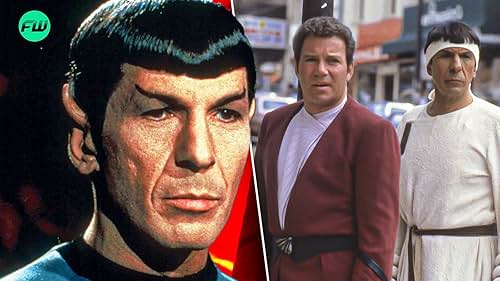
Star Trek IV: The Voyage Home was a surprising blend of time travel, comedy, and environmentalism which made it one of the biggest hits in 1986. It was the most successful film in the franchise before 2009 and had an everlasting impression on fans. What makes it so lovable is the cast’s dedication and willingness to pitch their ideas for uplifting Star Trek.
A still from Star Trek IV: The Voyage Home | credit: Paramount Pictures
The 1986 film would have headed on a little different route if it weren’t for an intervention made by Leonard Nimoy. Any Star Trek fan would be curious to know about these little details that would’ve changed the fate of the franchise, and that is precisely why everyone loves these tidbits, to theorize, and come up with their interpretations of what could’ve been.
Leonard Nimoy Suggested Snails Over Whales A still from Star Trek IV: The Voyage Home...
A still from Star Trek IV: The Voyage Home | credit: Paramount Pictures
The 1986 film would have headed on a little different route if it weren’t for an intervention made by Leonard Nimoy. Any Star Trek fan would be curious to know about these little details that would’ve changed the fate of the franchise, and that is precisely why everyone loves these tidbits, to theorize, and come up with their interpretations of what could’ve been.
Leonard Nimoy Suggested Snails Over Whales A still from Star Trek IV: The Voyage Home...
- 8/31/2024
- by Sonika Kamble
- FandomWire
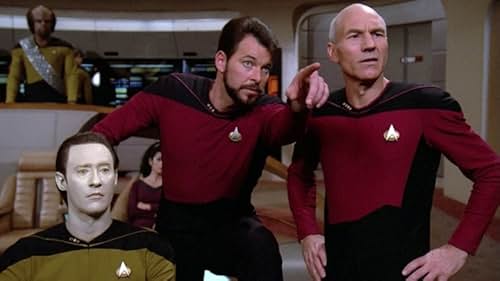
Many Trekkies tuned into the original "Star Trek" because of the careful, perfect balance between its three lead characters. On one side, there was Spock (Leonard Nimoy), who lived without emotions and devoted his life to logic. He was a being of intellect and reason. An Apollonian figure. Opposite Spock was Dr. McCoy (DeForest Kelley), who lived according to passion, anger, and outrage. He was a being of emotion and instinct. A Dionysian figure. Then, in between them, you had Captain Kirk (William Shatner), a being of judiciousness, authority, and balance. He was a command figure who could synthesize both the intellect and the body. Spock, McCoy, and Kirk, briefly, provided a mind-body-soul triune.
When "Star Trek: The Next Generation" launched in 1987, the well-worn "Star Trek" triune was studiously avoided. For his new show, creator Gene Roddenberry wanted a better-rounded dynamic across a larger ensemble cast. Instead of a show...
When "Star Trek: The Next Generation" launched in 1987, the well-worn "Star Trek" triune was studiously avoided. For his new show, creator Gene Roddenberry wanted a better-rounded dynamic across a larger ensemble cast. Instead of a show...
- 8/22/2024
- by Witney Seibold
- Slash Film
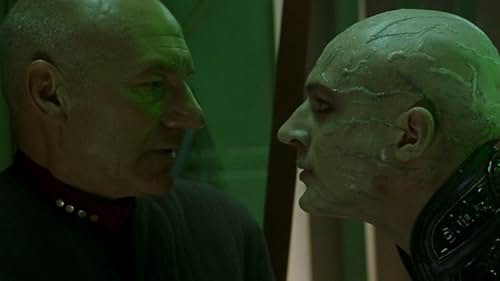
Stuart Baird's 2002 film "Star Trek: Nemesis" came at a very strange time in the franchise's history. "Star Trek" had spent the 1990s striding triumphantly across the landscape, producing multiple hit shows, one right after the other. There was a time when "Star Trek: The Next Generation" overlapped with "Star Trek: Deep Space Nine," and then when "Deep Space Nine" and "Star Trek: Voyager" ran concurrently. "Voyager" even helped Paramount launch its own TV network, the Upn, in 1995.
By 2001, though, the bloom was off the rose a bit. The series began to tire out. "Voyager" came to an end, and audiences were looking forward to a prequel series called "Enterprise." Before the show could debut, however, the world was shaken by the events of September 11, 2001. Pop rhetoric immediately turned to mourning, and then just as quickly to combat-based retribution. The gentle diplomacy of "Star Trek" instantly became dated. Then, when...
By 2001, though, the bloom was off the rose a bit. The series began to tire out. "Voyager" came to an end, and audiences were looking forward to a prequel series called "Enterprise." Before the show could debut, however, the world was shaken by the events of September 11, 2001. Pop rhetoric immediately turned to mourning, and then just as quickly to combat-based retribution. The gentle diplomacy of "Star Trek" instantly became dated. Then, when...
- 8/19/2024
- by Witney Seibold
- Slash Film
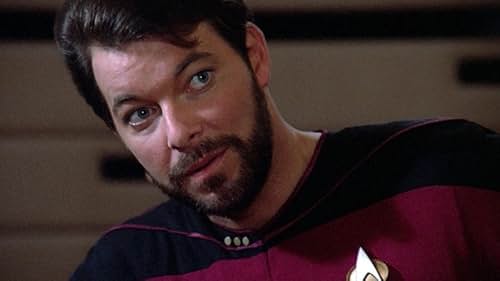
The first two seasons of "Star Trek: The Next Generation" were a fraught time in the franchise's history. Show creator Gene Roddenberry wanted to retain total control over the proceedings, leading to a lot of head-butting between him and the other executives working on the show. To make matters worse, Roddenberry's personal lawyer, Leonard Maizlish, was sneaking into offices at night and changing already-approved scripts to his own liking. "Next Generation" gained a lot of attention in its first two years, but many Trekkies will say without hesitation that they are the worst seasons of the show.
It certainly didn't help matters that the Writers Guild of America went on strike in March 1988, lousing up production on "Next Generation." Season two debuted on November 21, 1988, and the rest of the season was rushed or had to use incomplete scripts. The season is only 22 episodes, rather than the standard 26.
Producer Maurice Hurley...
It certainly didn't help matters that the Writers Guild of America went on strike in March 1988, lousing up production on "Next Generation." Season two debuted on November 21, 1988, and the rest of the season was rushed or had to use incomplete scripts. The season is only 22 episodes, rather than the standard 26.
Producer Maurice Hurley...
- 8/17/2024
- by Witney Seibold
- Slash Film
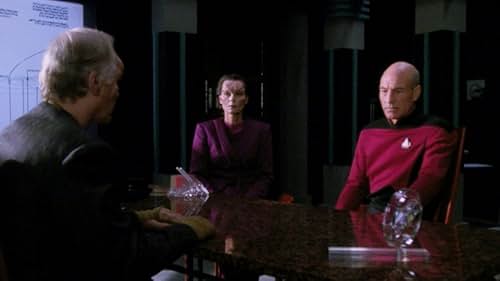
One of the central tenets of "Star Trek," as anyone might be able to tell you, is the Prime Directive. Federation starships may galavant around the galaxy at the discretion of Starfleet, but it's not the Wild West. When a Starfleet vessel comes across an alien world that hasn't yet developed faster-than-light travel, for instance, they are forbidden from interacting with them at all. An alien species, by Starfleet's philosophy, must be ready to enter the intergalactic community by their own travel innovations before they can be made aware of the existence of aliens. This stems from the Prime Directive, which forbids Starfleet from interfering with any world's natural development.
The Prime Directive also forbids Starfleet from making any major societal changes to any world. If, for instance, the Federation were to give widespread replicator technology to a planet that hadn't ever seen the technology before, it would dramatically alter their society,...
The Prime Directive also forbids Starfleet from making any major societal changes to any world. If, for instance, the Federation were to give widespread replicator technology to a planet that hadn't ever seen the technology before, it would dramatically alter their society,...
- 8/11/2024
- by Witney Seibold
- Slash Film
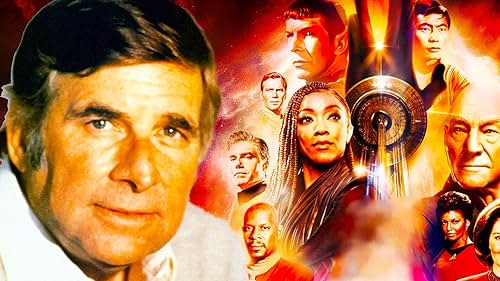
Roddenberry's vision for Star Trek evolved over time, with Tng having more restrictive rules for writers. Despite changes to the specifics of his fictional universe, Roddenberry's optimistic view of humanity shines through in all Star Trek series. Modern Star Trek shows continue to honor Roddenberry's core ideals of optimism and hope for the future.
Gene Roddenberry's original vision for Star Trek continues to define the franchise almost 60 years after the premiere of The Original Series. 30 years after Gene Roddenberry's death, new Star Trek TV shows are often criticized for straying from his original vision. However, what these critics often forget is that Gene Roddenberry's opinions about what constituted "proper" Star Trek could turn on a dime. So, rather than ask whether modern Star Trek shows live up to Gene's vision, we should really ask which version of Gene's vision that the modern era is supposed to be following.
Looking...
Gene Roddenberry's original vision for Star Trek continues to define the franchise almost 60 years after the premiere of The Original Series. 30 years after Gene Roddenberry's death, new Star Trek TV shows are often criticized for straying from his original vision. However, what these critics often forget is that Gene Roddenberry's opinions about what constituted "proper" Star Trek could turn on a dime. So, rather than ask whether modern Star Trek shows live up to Gene's vision, we should really ask which version of Gene's vision that the modern era is supposed to be following.
Looking...
- 8/7/2024
- by Mark Donaldson
- ScreenRant
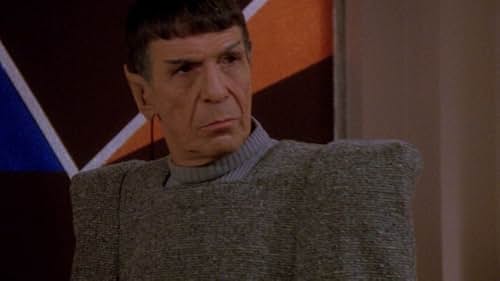
When Gene Roddenberry was writing the series Bible for "Star Trek: The Next Generation" back in 1986, he had several strict rules that writers had to follow. Most frustrating of these rules -- sometimes just called the Roddenberry Rule -- was that no episodes could center on the show's main characters having personal disagreements. In Roddenberry's view, all the workers on a Federation starship had to get along, or at least responded to each other with nothing less than 100% authentic professional courtesy. Writers hated the Roddenberry Rule, as they felt the best way to generate drama was by inventing interpersonal conflict. By deliberately taking away interpersonal conflict, Roddenberry was creatively hamstringing them.
Roddenberry also wanted "Next Generation" to be a cleaner, purer version of the original "Star Trek" he launched 20 years earlier. He wanted to be wholly in charge this time, and dictate every minutiae of the series. This often caused...
Roddenberry also wanted "Next Generation" to be a cleaner, purer version of the original "Star Trek" he launched 20 years earlier. He wanted to be wholly in charge this time, and dictate every minutiae of the series. This often caused...
- 8/3/2024
- by Witney Seibold
- Slash Film
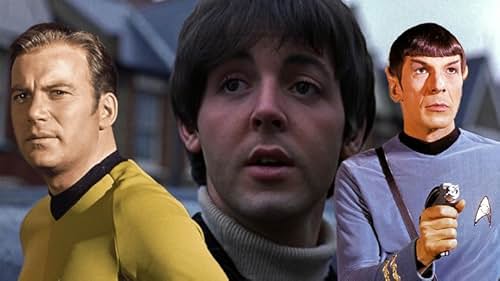
After "Star Trek" was canceled in 1969, show creator Gene Roddenberry was dismayed. The series was hard-fought, but the ratings were never stellar during its initial run. Indeed, CBS was going to cancel the show at the end of its second season, but a massive letter-writing campaign kept it going for another year. "Star Trek," as most Trekkies know, didn't really its massive audience for a few years, after the series had been put into eternal syndication. Only then did fans start flocking to the show in earnest. It wouldn't be until 1972 that the first "Star Trek" convention would be held.
Roddenberry wasn't content to rest on his growing laurels, however, and tried out a few projects in the early 1970s, hoping to further explore his sci-fi interests. He loved to preach a philosophy of pacifism, as well as larger sci-fi themes about humanity's place in the cosmos. In 1973, he created "Genesis II,...
Roddenberry wasn't content to rest on his growing laurels, however, and tried out a few projects in the early 1970s, hoping to further explore his sci-fi interests. He loved to preach a philosophy of pacifism, as well as larger sci-fi themes about humanity's place in the cosmos. In 1973, he created "Genesis II,...
- 7/30/2024
- by Witney Seibold
- Slash Film
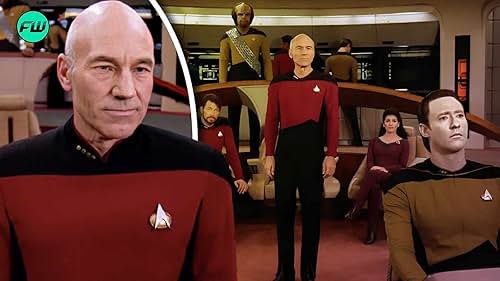
If Star Trek is a representative of the sci-fi space genre, Sir Patrick Stewart is its face. Stewart’s role as Captain Jean-Luc Picard has established him as a revered figure among Trekkies worldwide, but there’s something about the character that bugs even the most stalwart of them.
Jean-Luc Picard and his crew| Paramount
In Star Trek: The Next Generations, Picard has been vehemently described as French. However, we see him speak English with a perfect British accent. Why is that?
Jean-Luc Picard might actually be speaking French
Jean-Luc Picard’s choice of language has always been a bit of a mystery to fans. Though many would assume the accent we hear on the show might be the result of his education and constant practice, or his parents moving to the UK from France in his early years, there’s one more theory that uses a Star Trek element to explain the issue.
Jean-Luc Picard and his crew| Paramount
In Star Trek: The Next Generations, Picard has been vehemently described as French. However, we see him speak English with a perfect British accent. Why is that?
Jean-Luc Picard might actually be speaking French
Jean-Luc Picard’s choice of language has always been a bit of a mystery to fans. Though many would assume the accent we hear on the show might be the result of his education and constant practice, or his parents moving to the UK from France in his early years, there’s one more theory that uses a Star Trek element to explain the issue.
- 7/20/2024
- by Sayantan Choudhary
- FandomWire
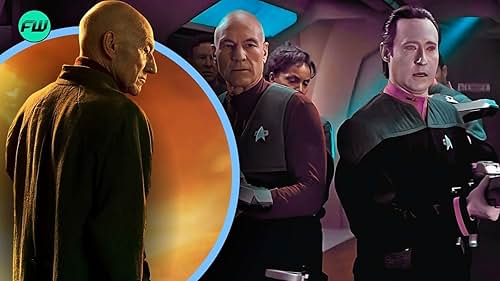
Numerous Trekkies were heavily disappointed when Brent Spiner’s Data faced his end in Star Trek: Nemesis. Fans were united on the point that a character like him deserved a more respectable death. Interestingly, the makers had a more bizarre plan to show the character’s end even before Nemesis in the ninth film Star Trek: Insurrection.
Data in Star Trek: Insurrection | Paramount Pictures
After the massive popularity of Star Trek: The Next Generation series, the makers decided to give four theatrical flicks to Patrick Stewart and his co-stars. Among the four films, Star Trek: Insurrection is often counted as the worst one on the list. However, the writers of the film later revealed that their initial plans for the film were much different and darker than what we saw in the final cut.
Why was Star Trek: Insurrection‘s story changed?
A still from Star Trek: Insurrection | Paramount Pictures...
Data in Star Trek: Insurrection | Paramount Pictures
After the massive popularity of Star Trek: The Next Generation series, the makers decided to give four theatrical flicks to Patrick Stewart and his co-stars. Among the four films, Star Trek: Insurrection is often counted as the worst one on the list. However, the writers of the film later revealed that their initial plans for the film were much different and darker than what we saw in the final cut.
Why was Star Trek: Insurrection‘s story changed?
A still from Star Trek: Insurrection | Paramount Pictures...
- 7/14/2024
- by Subham Mandal
- FandomWire
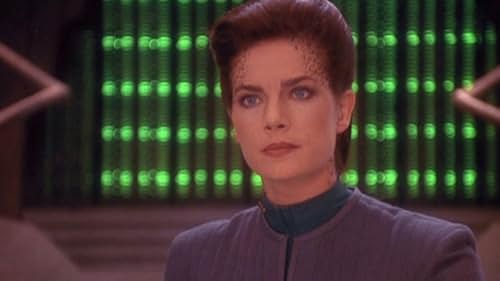
The character of Jadzia Dax (Terry Farrell) on "Star Trek: Deep Space Nine" belongs to a species called the Trill. Many Trills are capable of conjoining with long-lived, surgically implanted, worm-like symbionts that live in their abdomens. The symbionts get passed from host to host during their lifetimes, sharing a consciousness with each one. Dax is partially a 22-year-old woman, but, thanks to her symbiont, also possesses the memories and personalities of seven previous hosts, including — most recently — a rowdy old man named Curzon. Captain Sisko (Avery Brooks) was friends with Curzon and was thrilled to meet Jadzia, the next incarnation in his friend's life. He affectionately called her "old man."
When "Deep Space Nine" began, the writers focused heavily on Dax's relationship with the young, idealistic Dr. Bashir (Alexander Siddig), an insufferably flirt. Dr. Bashir would frequently proposition Dax, and she, with the patience of a centuries-old sage, would rebuff him.
When "Deep Space Nine" began, the writers focused heavily on Dax's relationship with the young, idealistic Dr. Bashir (Alexander Siddig), an insufferably flirt. Dr. Bashir would frequently proposition Dax, and she, with the patience of a centuries-old sage, would rebuff him.
- 7/10/2024
- by Witney Seibold
- Slash Film
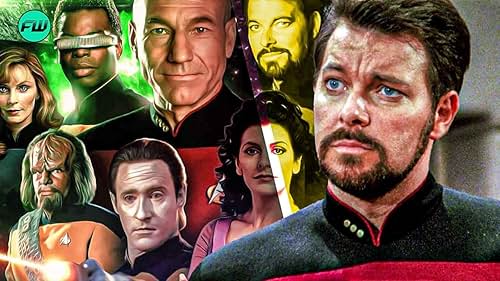
The Star Trek franchise has grown exponentially over the years and audiences have seen the franchise evolve in many ways to mixed results. The original series and The Next Generation remain the peak of the franchise which saw the birth of many iconic characters like Jean-Luc Picard and William Ryker played by Patrick Stewart and Jonathan Frakes.
A still from Star Trek: The Next Generation | Paramount Domestic Television
However, The Next Generation had to go through some initial struggles in its first two seasons as the show was finding its footing. One of the episodes from the second season was written by Tracy Tormé. However, he became frustrated with the constant rewrites done to the episode without his input and thus disowned it.
One Integral Writer of The Next Generation Had Abandoned An Entire Episode
The Royale (from Star Trek: The Next Generation) had a completely different treatment | Paramount Television...
A still from Star Trek: The Next Generation | Paramount Domestic Television
However, The Next Generation had to go through some initial struggles in its first two seasons as the show was finding its footing. One of the episodes from the second season was written by Tracy Tormé. However, he became frustrated with the constant rewrites done to the episode without his input and thus disowned it.
One Integral Writer of The Next Generation Had Abandoned An Entire Episode
The Royale (from Star Trek: The Next Generation) had a completely different treatment | Paramount Television...
- 6/30/2024
- by Rahul Thokchom
- FandomWire
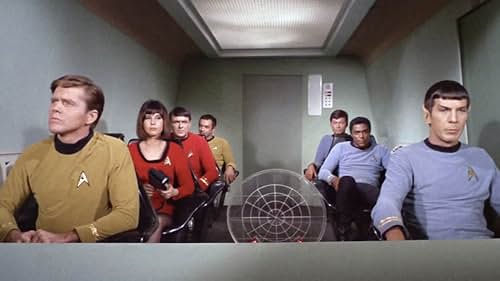
In the "Star Trek" episode "The Galileo Seven", Spock (Leonard Nimoy), Dr. McCoy (DeForest Kelley), Lieutenant Commander Scott (James Doohan), and three specialists are assigned to take Enterprise's shuttlecraft, the Galileo, on a special survey to map the Murasaki-312 quasar. A mysterious spatial phenomenon pulls the shuttle off course, however, and it crash lands on a nearby world inhabited by vicious 10-foot-tall cavemen.
The seven people on board the Galileo have to repair their ship and find a way to contact the Enterprise through the signal-scrambling mists of the quasar. Their job is made more difficult by the attacking cavemen, who want to murder them with spears. The collected and logical Spock attempts to scare off the brutes, while his more emotional, human counterparts encourage deadly force. When two of the Galileo Seven are killed, Spock discourages a memorial service. The episode is ultimately about how Spock's logic isn't always...
The seven people on board the Galileo have to repair their ship and find a way to contact the Enterprise through the signal-scrambling mists of the quasar. Their job is made more difficult by the attacking cavemen, who want to murder them with spears. The collected and logical Spock attempts to scare off the brutes, while his more emotional, human counterparts encourage deadly force. When two of the Galileo Seven are killed, Spock discourages a memorial service. The episode is ultimately about how Spock's logic isn't always...
- 6/24/2024
- by Witney Seibold
- Slash Film
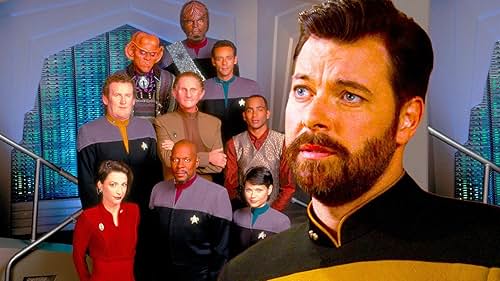
Star Trek: DS9 had plans to bring back Thomas Riker, but logistical concerns and the need to move on from Tng cast led to his abandonment. Jonathan Frakes reprised his role as Thomas Riker on DS9, but future episode ideas were scrapped, ultimately benefiting the show. DS9's showrunner made the tough decision to cut ties with Thomas Riker to focus on developing new characters like Eddington.
I've always wondered why Star Trek: Deep Space Nine abandoned their plans for Thomas Riker, the treacherous transporter clone of Star Trek: The Next Generation's Commander William T. Riker (Jonathan Frakes). Thomas Riker was first introduced in Tng season 6, episode 24, "Second Chances", in which he is discovered living in isolation on Nervala IV. This forced to Thomas to see the man that he eventually became, and he found that Will Riker didn't live up to expectations. Thomas was appalled by Riker's rejection of promotion,...
I've always wondered why Star Trek: Deep Space Nine abandoned their plans for Thomas Riker, the treacherous transporter clone of Star Trek: The Next Generation's Commander William T. Riker (Jonathan Frakes). Thomas Riker was first introduced in Tng season 6, episode 24, "Second Chances", in which he is discovered living in isolation on Nervala IV. This forced to Thomas to see the man that he eventually became, and he found that Will Riker didn't live up to expectations. Thomas was appalled by Riker's rejection of promotion,...
- 6/22/2024
- by Mark Donaldson
- ScreenRant
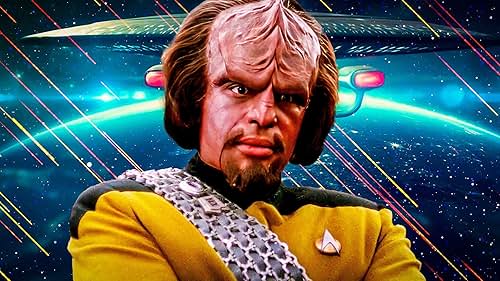
Worf's dilemma in Star Trek: Tng shows his struggle to balance Klingon heritage with Starfleet duties. Michael Dorn questioned Worf's decision, feeling it made him seem more alien and less human. Worf's refusal to save a Romulan makes him appear less bound by human morals, adding depth to his character.
Michael Dorn questioned Lt. Worf's decision in an episode of Star Trek: The Next Generation, as Dorn was worried that fans would think the Klingon was a murderer. As the only Klingon in Starfleet at the time, Worf was often torn between his desire to embrace Klingon culture and his duties as a Starfleet officer. After the death of his biological parents at the Khitomer Massacre, Worf was raised by humans on Earth. Because of this, he already felt somewhat disconnected from Klingon culture, but this Tng episode emphasized that Worf was not human.
In Star Trek: The Next Generation season 3, episode 7, "The Enemy,...
Michael Dorn questioned Lt. Worf's decision in an episode of Star Trek: The Next Generation, as Dorn was worried that fans would think the Klingon was a murderer. As the only Klingon in Starfleet at the time, Worf was often torn between his desire to embrace Klingon culture and his duties as a Starfleet officer. After the death of his biological parents at the Khitomer Massacre, Worf was raised by humans on Earth. Because of this, he already felt somewhat disconnected from Klingon culture, but this Tng episode emphasized that Worf was not human.
In Star Trek: The Next Generation season 3, episode 7, "The Enemy,...
- 6/22/2024
- by Rachel Hulshult
- ScreenRant
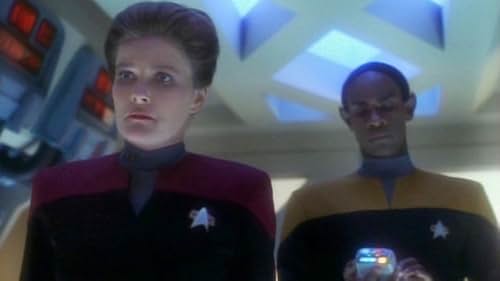
In "Caretaker," the 1995 pilot episode of "Star Trek: Voyager," the show's titular ship is instantly whisked across the galaxy by an ineffably powerful space alien called the Caretaker. It seems the Caretaker was scanning the entire galaxy looking for lifeforms that it might be able to reproduce with, hoping to produce a progeny to continue its work. Many years ago, the Caretaker's technology accidentally destroyed the planet of a gentle, innocent species called the Ocampa, and he'd been using his technology to care for the survivors ever since. The Ocampa now live sheltered underground, while the Caretaker needs an heir to take over caretaking duties before he dies in less than a day.
Captain Janeway (Kate Mulgrew) recognizes that when the Caretaker dies, some local ruffians called the Kazon will instantly plunder his technology and potentially wreak galaxy-wide havoc. Janeway chooses to destroy the Caretaker's massive home satellite rather than...
Captain Janeway (Kate Mulgrew) recognizes that when the Caretaker dies, some local ruffians called the Kazon will instantly plunder his technology and potentially wreak galaxy-wide havoc. Janeway chooses to destroy the Caretaker's massive home satellite rather than...
- 6/17/2024
- by Witney Seibold
- Slash Film
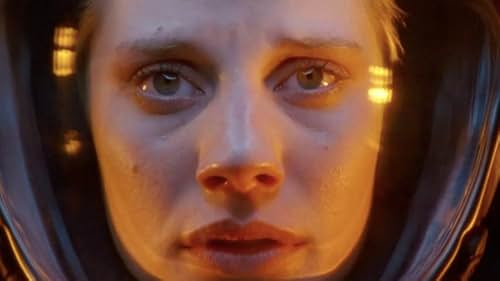
It's hard to pick just one favorite character on the reimagined "Battlestar Galactica." One especially beloved member of that ensemble though, is Kara Thrace/Starbuck, the hotshot pilot with a spiritual side and self-doubt to match her strength. She's at the center of the series from the beginning and ultimately becomes the lynchpin in one of its more ... metaphysical storylines.
In the pilot mini-series of "Battlestar Galactica," the android Cylons wipe out the 12 Colonies of Man. So, the eponymous Galactica and a handful of surviving ships set out to find a new home while dodging their Cylon pursuers. The thrust of the series is this makeshift fleet's search for Earth, mythical home of the thirteenth tribe of man. In the end, Starbuck leads them there, sort of.
In season 3 episode "Maelstrom," Kara dies piloting her Viper (a space fighter jet) inside a gas giant. Her comrade/lover Lee Adama (Jamie Bamber) tries to dissuade her,...
In the pilot mini-series of "Battlestar Galactica," the android Cylons wipe out the 12 Colonies of Man. So, the eponymous Galactica and a handful of surviving ships set out to find a new home while dodging their Cylon pursuers. The thrust of the series is this makeshift fleet's search for Earth, mythical home of the thirteenth tribe of man. In the end, Starbuck leads them there, sort of.
In season 3 episode "Maelstrom," Kara dies piloting her Viper (a space fighter jet) inside a gas giant. Her comrade/lover Lee Adama (Jamie Bamber) tries to dissuade her,...
- 6/16/2024
- by Devin Meenan
- Slash Film
IMDb.com, Inc. takes no responsibility for the content or accuracy of the above news articles, Tweets, or blog posts. This content is published for the entertainment of our users only. The news articles, Tweets, and blog posts do not represent IMDb's opinions nor can we guarantee that the reporting therein is completely factual. Please visit the source responsible for the item in question to report any concerns you may have regarding content or accuracy.
